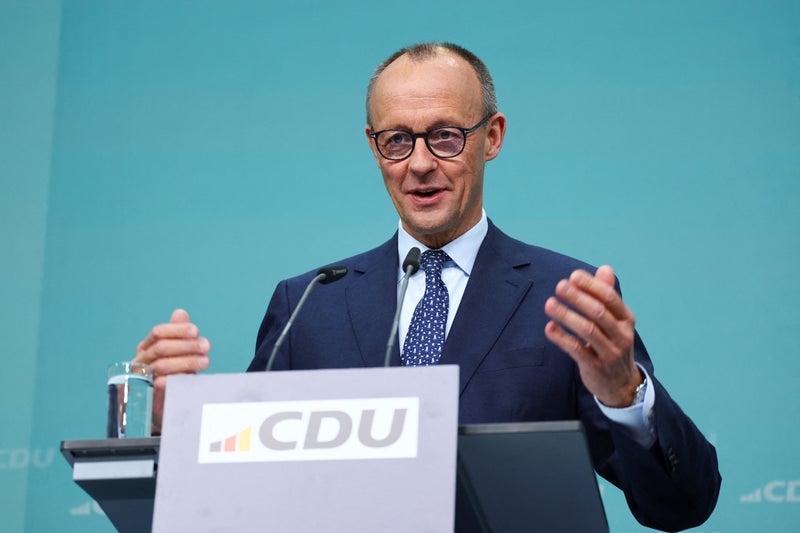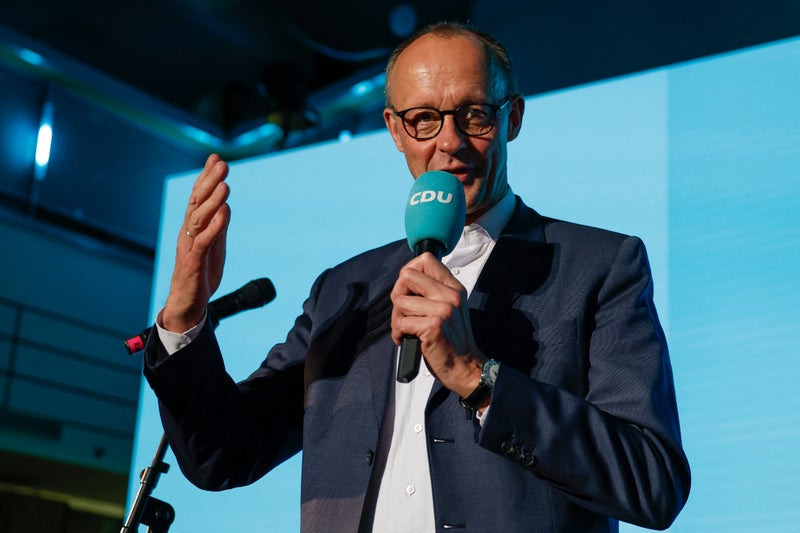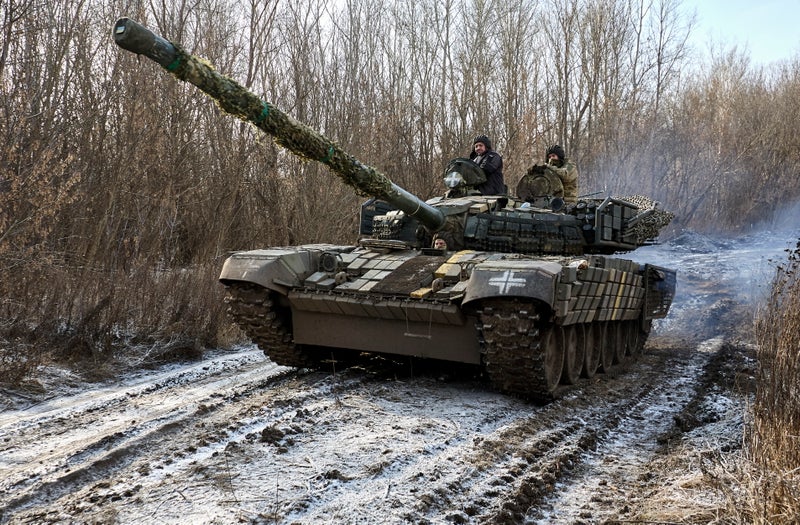Europe holds its breath as world’s third largest economic power and most populous EU country faces crossroads. German voters go to the polls today but it is a different world from when the campaign began only a few weeks ago. Nearly 60 million people are choosing a government that will have to grapple with the breakdown of the transatlantic alliance under Donald Trump and new threats to European security just as the country’s vaunted economic model is hitting the skids.
![[Protesters wearing masks of Elon Musk, AfD leader Alice Weidel, Donald Trump, Vladimir Putin and JD Vance in front of the Brandenburg Gate in Berlin on Thursday.]](https://i.guim.co.uk/img/media/57945a08739f725e72ba4aef9c8520b6a8488977/0_0_6000_4000/master/6000.jpg?width=445&dpr=1&s=none&crop=none)
If the polls are correct, the man leading that administration will be conservative opposition chief Friedrich Merz, a corporate lawyer with a decades-long desire to be chancellor despite never serving in government. His in-tray will be staggering. “The big expectations mirror the big challenges he’ll face from day one of his likely chancellorship,” news weekly Der Spiegel said. “An aggressive Russia, a hostile America and a Europe that is drifting apart: Merz could be tested more strongly […] than any chancellor of the postwar republic.”.
Merz recently admitted that Trump’s effective abandonment of European defence pledges and his vice-president JD Vance’s aggressive backing of the far-right Alternative für Deutschland (AfD) heralded “tectonic shifts in the political and economic power centres of the world”. Germany, he said, would not emerge unscathed.
Trump’s undermining of Nato and betrayal of Ukraine are “a wrenching punch to the gut”, said Ursula Münch, director of the Academy for Political Education thinktank in Bavaria, particularly for Merz’s Christian Democratic Union (CDU), which has “solidarity and friendship with the US deep in its DNA”. “The biggest challenge [for Germany] will be mustering a united show of strength by the EU and the UK.”.
Germany, the world’s third largest economic power and most populous EU country, was already struggling with the muddled legacy of Angela Merkel, one of Merz’s predecessors as CDU leader and his longtime nemesis. Her 16-year tenure as chancellor was marked by reliance on cheap Russian gas, brisk trade with China and Washington’s military and intelligence might, allowing Germany to focus on what it did best: manufacturing cars and machine tools while holding the EU together.
Merkel’s successor, Olaf Scholz, took office in December 2021 buoyed by hopes for a fresh approach to long-neglected problems with a technocratic “traffic light” coalition named for the party colours of his centre-left Social Democrats, the pro-business Free Democrats and the ecologist Greens. But only weeks later, Russia’s full-scale invasion of Ukraine blew the best-laid plans of Scholz’s “coalition for progress” permanently off course.
Within days of the war’s outbreak, Scholz declared a Zeitenwende (turning point), establishing a €100bn (£85bn) fund to beef up Germany’s paltry military equipment stocks and pledging to meet a Nato commitment of defence spending at 2% of GDP. By 2024, he had kept that promise.
But the halt of Russian energy supplies sent prices soaring, spurring galloping post-pandemic inflation and weighing heavily on industries such as steel and chemicals. Scholz’s government scrambled to find new fuel sources while pushing renewables.
China, in the meantime, pivoted from buying German vehicles to undercutting them with cheaper models, particularly in the EV sector. At a recent televised debate Merz, who left politics for business for 12 years after losing a power struggle with Merkel, accused Scholz’s government of economic “incompetence” after two years of recession. Scholz shot back: “I didn’t invade Ukraine!”.
Scholz’s coalition finally collapsed in November – within hours of Trump winning the US election – over a still unresolved conundrum around the strict “debt brake” that keeps federal government annual borrowing to 0.35% of GDP. The implosion triggered a general election seven months ahead of schedule.
But Scholz’s era of political turmoil might soon look like halcyon days. Germany’s true Zeitenwende is still to come, argues veteran political analyst Herfried Münkler, as Berlin faces up to the painful realisation that the postwar order that welcomed the country back into the community of nations after the Nazi atrocities has come to an end.
“The biggest loser of the latest developments is Germany, not only because its economic power has shrunk but also because German politicians relied unconditionally to the end on the transatlantic relationship,” he wrote in the newspaper Die Zeit.
“The next government will have to take great pains to reassert German leadership in Europe.”. Sign up to Observed. Analysis and opinion on the week's news and culture brought to you by the best Observer writers. after newsletter promotion. Reforming the debt brake will be essential to that process, said Sascha Huber, a political scientist at the University of Mainz, as more defence spending will have to be financed with new debt. “But the first challenge will be forming a stable coalition,” he said.































